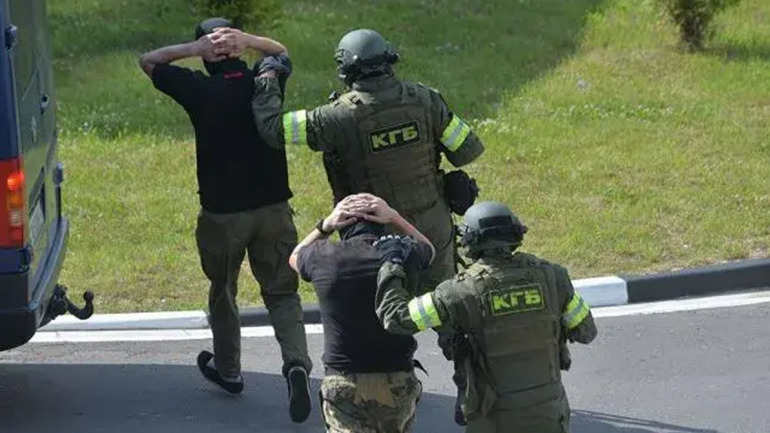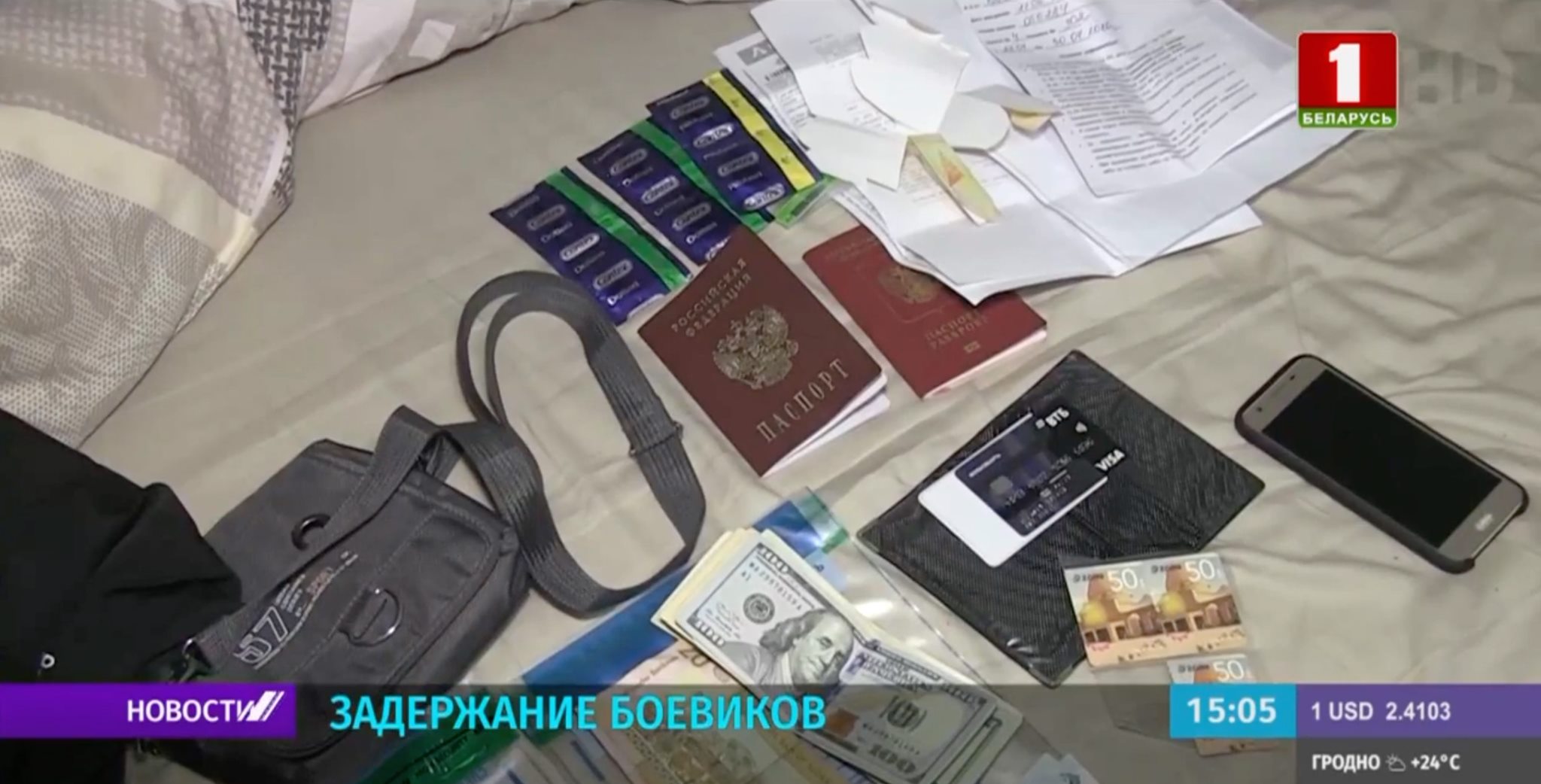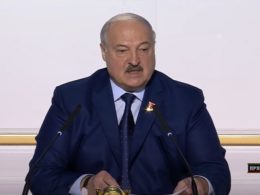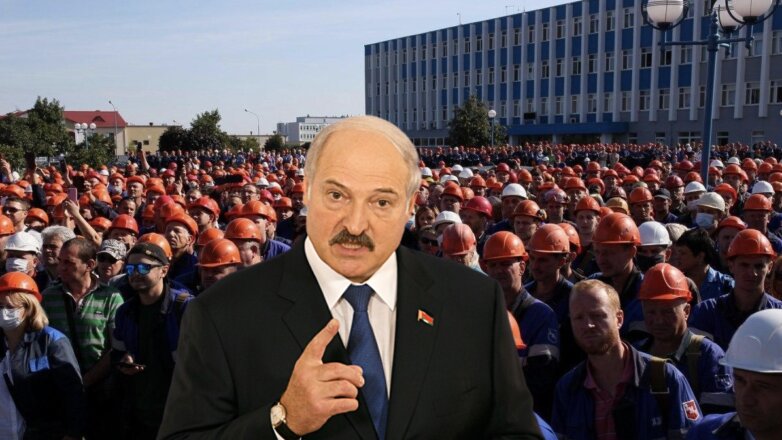Alyaksandr Lukashenka is running for re-election on August 9, and faces his biggest challenge in years as public anger rises over his handling of COVID-19, the economy and human rights.
In recent weeks, Belarusian security forces have broken up what they call illegal protests. Last month, Lukashenka accused Russian and Polish forces of trying to discredit him. Russia denied the allegations.
What happened…
The Wagner Group arrived in Minsk on the night of July 24-25; each man carried a small piece of hand luggage and heavy suitcases. First, the group settled in a hotel in Minsk, but left on July 27 and moved to a sanatorium resort located in a more remote district of Minsk.
According to the administration of the sanatorium, the visitors immediately aroused suspicion as they wore military-type clothing, and behaved in ways “uncharacteristic for Russian tourists”. They did not drink alcohol or visit popular entertainment spots, and tried to keep a low profile. They were seen walking around in small groups, carefully studying the area and surroundings of the sanatorium.
Belarusian State TV showed the men being detained in their underwear and broadcast footage of one man’s belongings which included a Russian passport, military-style patches and dollar bills. The Russian service of Radio Liberty noted that other belongings seized in the raid included papers in Arabic, bank notes and telephone cards from Sudan, which suggested that the mercenaries may have been en route to Africa. In fact, they may have used Minsk as a convenient hub to transfer to another country.
Belta has published the names and birth dates of 32 detained Russian fighters whom it described as employees of the PMC Wagner Group, a mercenary recruiting company linked to businessman Yevgeniy Prigozhin, a longtime associate of Russian President Vladimir Putin of Russia. The Kremlin and the Russian Foreign Ministry did not immediately respond to requests for comment. The Kremlin denies that it uses mercenaries.
Many names listed in the report can be found in Ukraine’s Myrotvorets database that identifies fighters who have taken part in the Russia’s war against Ukraine in the Donbas.
Among the 33 arrested men, the following individuals are listed in Belta’s report and in the Myrotvorets database:
Denis Kharitonov (“Bayan”)-native of Astrakhan Oblast, RF; Sergei Shcherbakov-native of Astrakhan, RF; Fedor Sergeev-native of Astrakhan Oblast, RF; Rinat Karimov-native of Ufa, Republic of Bashkortostan, RF; Igor Shelomentsev (“Shel”)-native of Ulan-Ude, Republic of Buryatia, RF; Aleksandr Rudenko-native of Bryansk Oblast, RF; Andrei Tokarenko-native of Moscow, RF; Takhir Bakhtigaraev (“Fartovy”-native of Perm, RF; Andrei Bakunovich-native of Belarus; Oleh Dryha-native of Donetsk, Ukraine; Hennadiy Fetysov (“Sova”)-native of Donetsk, Ukraine; Maksym Koshman (“Korshun”)-native of Sloviansk, Ukraine; Oleksandr Shubin (“Zloi”)-native of Luhansk, Ukraine. All of the men carried Russian passports.
The Prilepin trail
Among the Russians detained in Belarus are terrorists who served in the battalion organized by the notorious Russian writer Yevgeniy “Zakhar” Prilepin, who fought on the side of the Russian-controlled militants in the Donbas. It can also be presumed that the group or part of the group was heading to occupied Donbas.
In February 2017, Prilepin announced the formation of a volunteer battalion in the self-proclaimed “DNR”. He soon became an influential figure in this so-called republic. In July 2018, he was “demobilized” and returned to Moscow.
Prilepin confirmed that there were indeed several former fighters from his battalion (which no longer exists) among the detained men. Prilepin believes that these persons are not at all involved in the upcoming elections in Belarus, but that they were heading to another country and that the Belarusian special service knew about their intentions.
The final word
On July 30, the Interfax-Ukraine news agency informed that the Ukrainian security service (SBU) would initiate extradition proceedings for the terrorists detained in Belarus. The Office of the Prosecutor General is directly in charge of dealing with extradition issues.
It will be interesting to see whether Lukashenka’s regime hands over the Wagner mercenaries to Ukraine so that they stand trial for their direct participation in Russia’s war against Ukraine.
President Lukashenka convened an emergency meeting of the Belarusian Security Council, instructing them to address the Kremlin regarding the Russian mercenaries detained near Minsk, “so that they could explain what was happening”. Lukashenka also referred to Russia’s “dirty intentions” and told the Russian media to “stop talking bullshit”.
The Belarusian Foreign Ministry plans to invite the Russian and Ukrainian ambassadors to discuss the arrest of the Wagner members. They want to talk to the Ukrainian diplomat because some of the detained mercenaries were identified on the ground in the Donbas.
The Secretary of the Security Service of Belarus Andriy Ravkov stated that the Russians detained near Minsk were being investigated and were ready to testify.
Read more: Russian nationalist writer fights in Donbas to seize Kyiv
Read more: Wagner mercenaries: what we know about Putin’s private army in Donbas
Read more: PMC Wagner is a unit of Russian military intelligence, mercs’ IDs show-SBU chief









